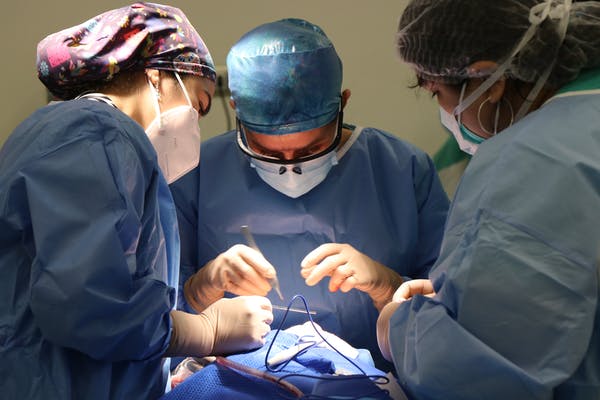HEALTH
When Is Surgery For GERD Needed?

GERD (gastroesophageal reflux disease) is a persistent condition in which stomach acid goes into the esophagus. In most situations, lifestyle modifications and medicines are sufficient to prevent and alleviate GERD San Antonio symptoms. However, surgery is occasionally required. If lifestyle modifications and drugs alone have not relieved your problems, your doctor may consider surgery. If you have acquired GERD issues, they may also recommend surgery. There are several surgical options for treating GERD. These treatments are called Fundoplication (in which the top of your stomach is sewed around your esophagus) and Bariatric Surgery (typically advised when a specialist has concluded that your GERD may be aggravated by too much additional weight).
Causes of GERD
“Gastroesophageal” refers to the stomach and esophagus. The term “reflux” refers to a return or flow back. When the stomach contents return up into the esophagus, this is known as gastroesophageal reflux. During normal digestion, your LES opens to let food into your stomach. Then it shuts down to prevent food and acidic stomach contents from returning to your esophagus. Gastroesophageal reflux happens when the LES is weak or relaxes when it should not. This allows stomach contents to flow up into the esophagus.
Treating GERD
GERD is a chronic condition that must be managed over time. Doctors frequently treat GERD with drugs and lifestyle modifications. Doctors may recommend surgery if signs do not resolve.
1. Medications
Medications used to manage GERD reduce acid production. PPIs are considered the most effective treatment choice for erosive and non-erosive GERD. They can aid in the healing of the esophageal lining. Other alternatives include:
- H2 blockers: These similarly lower the amount of acid in the stomach but are less effective in healing the esophageal lining.
- Antacids: Since they are alkaline (bases), they neutralize stomach acid. They are available over the counter to assist with minor ease symptoms. Diarrhea and constipation are possible side effects.
- Prokinetics: These aid in the rapid emptying of the stomach. Adverse effects are diarrhea, nausea, and anxiety.
- Erythromycin: This is an antibiotic that helps the stomach empty quickly.
2. Changes in lifestyle
Since they can assist improve symptoms, lifestyle changes are essential to GERD treatment. These changes might include:
- Losing weight for persons who are overweight or have just gained weight.
- Sleeping in an upright posture.
- Diet modification and avoidance of food triggers.
- Avoid eating three hours before bedtime.
Heartburn vs. GERD
Understanding the difference between occasional heartburn (which may not require medical attention) and GERD is critical. Most individuals get heartburn from time to time, and it is not a cause for concern in most cases. However, if you get heartburn more than twice a week, and especially if you also have a chronic cough and chest discomfort, you may have GERD.
Acid reflux is not a cause for worry until it occurs frequently and becomes chronic. In this situation, heartburn might be a sign of GERD. GERD is a condition that can be managed. A combination of lifestyle modifications and drugs is often sufficient to treat it. However, if left unmanaged, it can lead to severe consequences and may necessitate surgery. Call Digestive & Liver Disease Center of San Antonio PLLC to learn more about GERD treatments.
Umar Nisar was born and raised in the busy city of Abbottabad. As a journalist, Umar Nisar has contributed to many online publications including PAK Today and the Huffing Post. In regards to academics, Umar Nisar earned a degree in business from the Abbottabad UST, Havelian. Umar Nisar follows the money and covers all aspects of emerging tech here at The Hear Up.
Thanks










